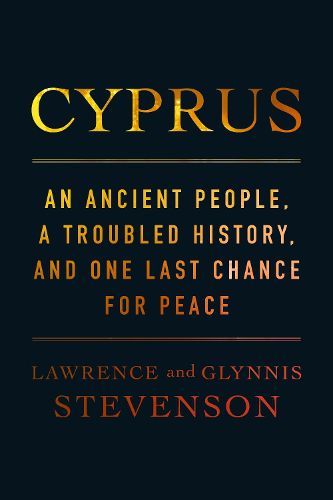Readings Newsletter
Become a Readings Member to make your shopping experience even easier.
Sign in or sign up for free!
You’re not far away from qualifying for FREE standard shipping within Australia
You’ve qualified for FREE standard shipping within Australia
The cart is loading…






Lawrence Stevenson served two tours of Cyprus as a United Nations peacekeeper during the 1970s and 1980s, and saw an island at war with itself with no hope of resolution in sight. Those experiences, and Cyprus’s intractable division between East and West, haunted him deep into adulthood. Now, fifty years later, he returns to the tiny island in the Eastern Mediterranean as its chances of a peaceful reunification are fast running out.
Relying on his own insights and research, as well as interviews with a diverse lot of international lawyers, UN officials, politicians, and Cypriots, Stevenson and his daughter Glynnis, a historian, reflect on how the island came to its impasse, and why the UN, the EU, the US, and the UK have failed to return it to peace.
With a fair-minded appraisal of the wrongs committed and suffered by both sides and a clear-eyed sense of diplomatic possibilities, Lawrence and Glynnis outline the only remaining option available for those who wish Cyprus reunited under one government. It is an option they passionately endorse, not only for the sake of the Cypriots, but as a rare example of peaceful co-existence in an increasingly fractured world.
$9.00 standard shipping within Australia
FREE standard shipping within Australia for orders over $100.00
Express & International shipping calculated at checkout
Lawrence Stevenson served two tours of Cyprus as a United Nations peacekeeper during the 1970s and 1980s, and saw an island at war with itself with no hope of resolution in sight. Those experiences, and Cyprus’s intractable division between East and West, haunted him deep into adulthood. Now, fifty years later, he returns to the tiny island in the Eastern Mediterranean as its chances of a peaceful reunification are fast running out.
Relying on his own insights and research, as well as interviews with a diverse lot of international lawyers, UN officials, politicians, and Cypriots, Stevenson and his daughter Glynnis, a historian, reflect on how the island came to its impasse, and why the UN, the EU, the US, and the UK have failed to return it to peace.
With a fair-minded appraisal of the wrongs committed and suffered by both sides and a clear-eyed sense of diplomatic possibilities, Lawrence and Glynnis outline the only remaining option available for those who wish Cyprus reunited under one government. It is an option they passionately endorse, not only for the sake of the Cypriots, but as a rare example of peaceful co-existence in an increasingly fractured world.